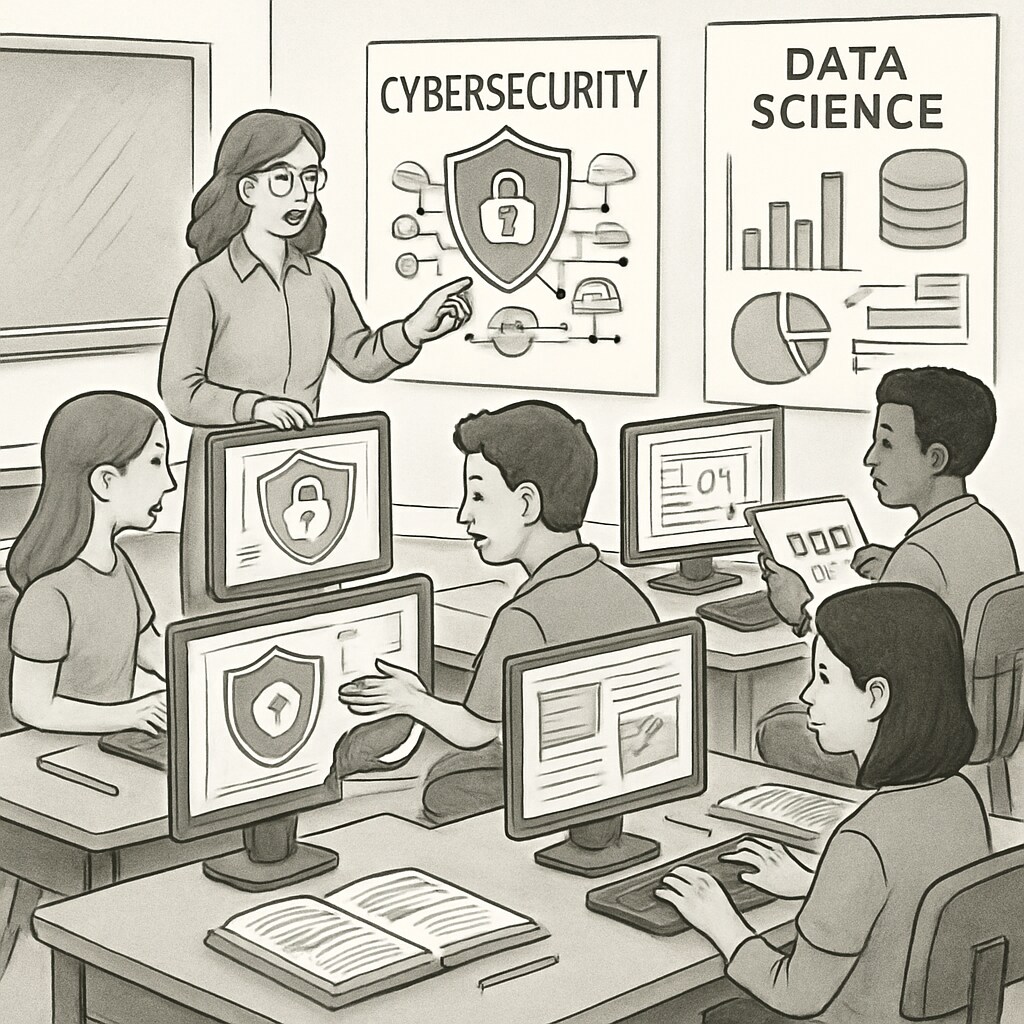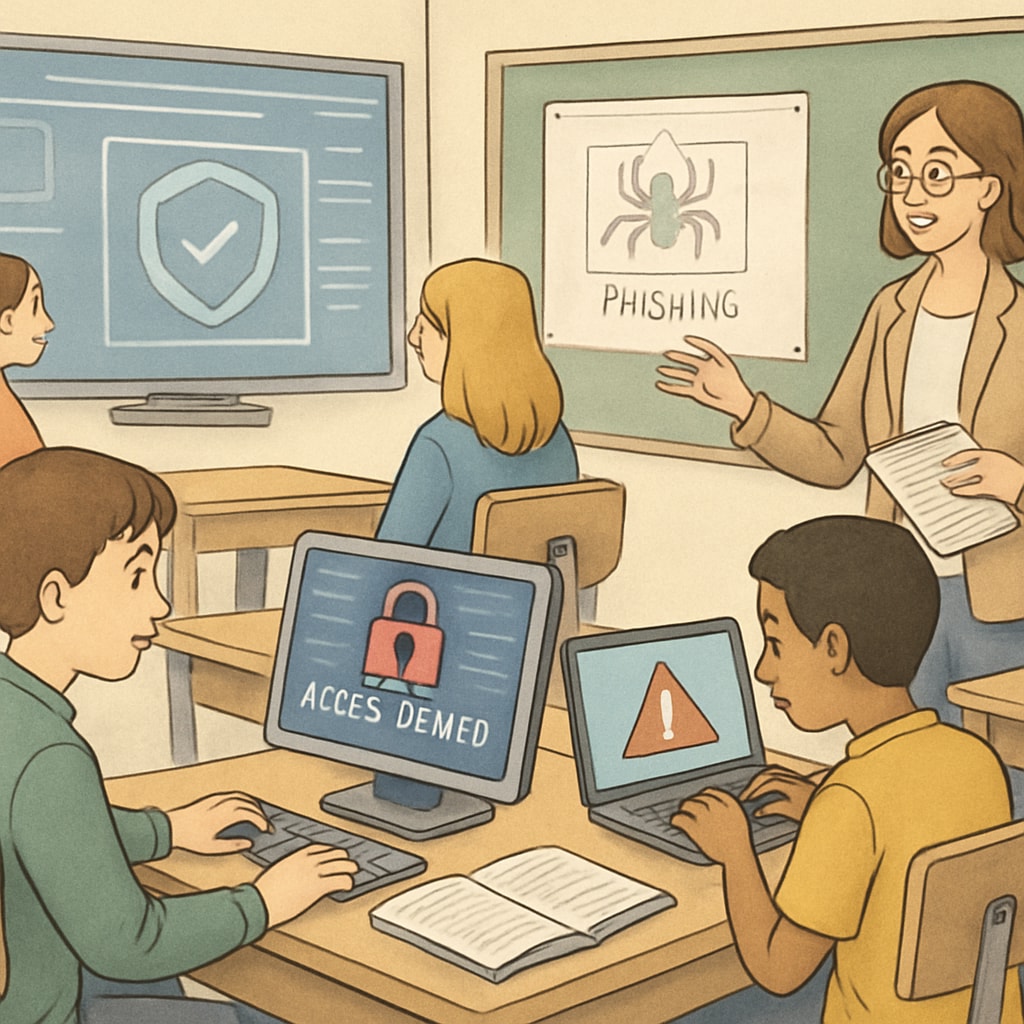As the digital age advances rapidly, the importance of cybersecurity, data science engineering, and career choices has grown exponentially. These fields are not only shaping the future of technology but also offering lucrative and fulfilling career paths for individuals who pursue them. The question then arises: how can we prepare students in the K12 education phase to understand and embrace these opportunities? This article delves into strategies for fostering awareness and interest in these domains during formative years.
Why Cybersecurity and Data Science Engineering Matter
Cybersecurity and data science engineering are integral to modern society. Cybersecurity involves protecting networks, systems, and data from malicious attacks, ensuring the digital safety of individuals and organizations. On the other hand, data science engineering uses statistical methods and machine learning to analyze and interpret large datasets to solve complex problems. These fields are interconnected, as both rely on advanced technology and critical thinking skills to address global challenges.
According to Wikipedia’s overview on cybersecurity, cyber threats are becoming increasingly sophisticated, necessitating professionals who can safeguard sensitive information. Meanwhile, Britannica highlights the importance of data science in decision-making across industries. By introducing students to these concepts early, educators can inspire them to pursue careers that will remain essential for decades to come.

K12 Education: The Key to Early Career Awareness
Building awareness in cybersecurity and data science engineering begins with integrating relevant topics into the K12 curriculum. For example, schools can introduce coding and computer science lessons that incorporate basic principles of network security and data analysis. These foundational skills help students understand the relevance of technology in everyday life and spark curiosity about related careers.
Additionally, educators can use project-based learning to engage students. For example:
- Organizing cybersecurity simulations to teach students how hackers exploit vulnerabilities and how defenses are built.
- Creating data analysis projects where students work with datasets to identify trends or solve real-world problems.
Such activities not only make learning fun but also demonstrate the practical applications of cybersecurity and data science, encouraging students to explore these fields further.

Career Pathways in Cybersecurity and Data Science Engineering
One major challenge in K12 education is exposing students to the various career opportunities within cybersecurity and data science engineering. While the fields are vast, educators can simplify the process by showcasing accessible roles such as:
- Cybersecurity Analyst: Responsible for monitoring and preventing potential security breaches.
- Data Scientist: Specializes in extracting insights from structured and unstructured data.
- Ethical Hacker: Tests systems to identify vulnerabilities before malicious actors do.
- Machine Learning Engineer: Designs and builds intelligent algorithms to process data.
By connecting these roles to real-world applications, students can envision themselves making impactful contributions in the future. Furthermore, schools can invite professionals from these industries to speak about their experiences, providing students with authentic insights and inspiration.
Challenges and Solutions in Promoting Career Awareness
Despite the potential for exciting career paths, there are challenges in introducing cybersecurity and data science engineering to K12 students. Common barriers include a lack of resources, limited teacher training, and the perception that these fields are too complex for younger learners. However, solutions are available:
- Professional Development: Schools can invest in teacher training programs to equip educators with the necessary knowledge and tools.
- Accessible Resources: Governments and organizations can provide free educational materials tailored to K12 students.
- Gamification: Using interactive games and platforms to teach concepts in a fun and engaging manner.
As a result of these efforts, students can develop a solid understanding of cybersecurity and data science without feeling overwhelmed.
The Role of Parents and Communities in Career Development
While schools play a critical role in fostering career awareness, parents and communities can also contribute. Parents can encourage children to explore STEM (science, technology, engineering, and mathematics) subjects at home through educational apps or extracurricular activities. Meanwhile, communities can organize tech workshops or hackathons to provide hands-on experiences.
By creating a supportive environment inside and outside the classroom, students are more likely to develop a keen interest in cybersecurity and data science engineering as viable career paths.
Conclusion: Paving the Way for Future Innovators
Cybersecurity, data science engineering, and career choices represent some of the most promising opportunities in the digital age. By introducing students to these fields during the K12 education phase, educators, parents, and communities can help them build essential skills and develop a strong sense of curiosity. As a result, students will be better prepared to pursue meaningful careers that contribute to the safety and advancement of modern society.
With thoughtful planning and collaboration, we can ensure that the next generation is equipped to lead in areas critical to our digital future.


